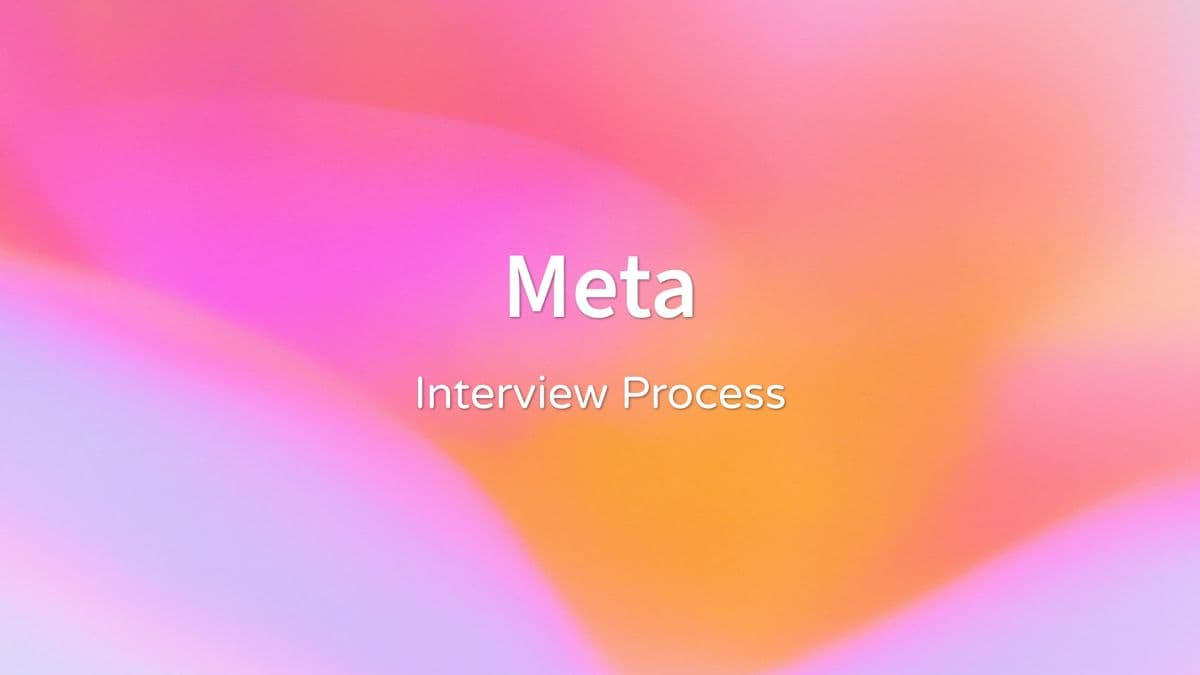Meta's Interview Process (2025)
Blog / Meta's Interview Process (2025)

The Meta interview process is a pretty standard big tech interview process that typically runs as follows:In terms of preparing for the interview it is best to break it down into main categories e.g. 1. Data Structures & Algorithms (DSA)Studying the most frequently asked LeetCode questions is by far the most efficient ways to prepare for Meta’s data structures and algorithms interviews. Focus on accuracy and speed, aiming to solve each question in under 20 minutes to simulate real interview conditions.While it’s valuable to explain your reasoning clearly, your main priority should be getting to a working, optimal solution efficiently. Meta interviews often reward candidates who can think aloud, identify edge cases, and refine their approach quickly under time pressure. Consistent, timed practice will help you build both confidence and problem-solving rhythm.2. System DesignSystem design questions at Meta often centre around their core products, such as Instagram, Messenger, or News Feeds - testing your ability to think at scale and design systems that can handle millions of users seamlessly.Interviewers also include broader favourites like Dropbox or Web Crawlers to assess your understanding of distributed systems, data flow, and scalability principles beyond Meta’s ecosystem. You can practice these types of questions using our System Design Whiteboard, which helps you simulate real interviews, refine your design approach, and improve how you communicate your reasoning.3. Behavioural questionsFor behavioural questions they can broadly be broken down into 3 categories:You can build strong answers to these questions with our Behavioral Interview Course, which walks you through how to structure responses using real Meta examples, and our Behavioral Playbook, where you can practice your answers, get AI-powered feedback, and refine your delivery until you’re fully prepared for the interview.ConclusionLuckily for you, we’ve already done all the heavy lifting, compiling the most frequently asked questions and generating detailed solutions across all three categories. Studying these materials will help you prepare efficiently and boost your chances of success. You can find everything structured step-by-step in our Meta Interview Roadmap, designed to guide you from preparation to offer.
- Recruiter Screening: An initial conversation to discuss your background, experience, and overall fit for Meta. Recruiters may also outline the interview process and assess your motivation for the role.
- Technical Screening: A virtual coding interview, typically involving two LeetCode-style DSA questions, focused on problem-solving ability, efficiency, and clarity of thought.
- Onsite / Final Rounds: These usually consist of multiple interviews, including System Design Interview and Behavioral questions
- Final Review and Decision: Feedback from all rounds is consolidated to make a final hiring decision, considering both technical excellence and cultural fit.
- Data Structures & Algorithms (DSA)
- System Design
- Behavioural questions
- Meta Specific (e.g. Discuss Meta’s core values)
- Teamwork (e.g. Discuss a time when you had a disagreement with a manager)
- Career development (e.g. Where do you see yourself in 5 years)
About TechPrep
You shouldn't have to struggle with interview anxiety. TechPrep empowers software engineers to stop guessing and start getting offers. We provide the exact, curated roadmap you need to master Data Structures, System Design, and Practical coding rounds. Join thousands of engineers who have turned rejections into dream jobs at top tech companies.